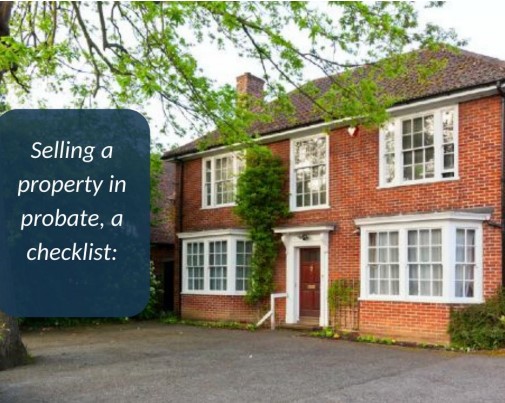The best questions to ask when you’re viewing a house
There are a lot of things to remember during the home buying process, especially when the property market is moving quickly. It’s very easy to get distracted by imagining yourself in a new place and forgetting to enquire about all the details. So, here’s a helpful list of the best questions to ask when you’re viewing a house to make sure you don’t miss anything.
It’s likely to be the biggest financial commitment you’ve ever made. Which means it’s important to do plenty of research about the property and surrounding area before you go along to a viewing and you shouldn’t be nervous about asking questions to anyone involved in the house sale, including the seller and estate agent.
The best questions to ask sellers when you’re viewing a house:
Why are you selling your house?
The owner doesn’t have to answer, but they might reveal reasons for needing a quick sale, or problems which weren’t immediately apparent.
How long have you lived here?
If the current owners have only been in the house for 6 months, that might indicate an issue that’s caused them to sell up. But if they’ve lived in the same place for decades, it’s a reasonable sign of a decent property and neighbourhood.
What’s the local area like?
Someone selling a house might not be keen on revealing problems with the local area, but they might share useful information about schools, shops, rubbish collection, parking or other tips.
Is the area prone to flooding or other issues?
You should always do your own research, but it’s worth also asking the seller if there’s a problem with flooding or other environmental issues.
Have you done any renovations and are there certificates for the work?
It’s important to check any relevant planning and building permission for major work, otherwise you could find yourself liable for mistakes or lapses by the previous owner.
Is the property listed or in a conservation area?
Listed properties can have strict conditions about what you can change or update. The previous owner may have experience of applying to make changes and being blocked and you may also face restrictions if the house is located in a conservation area.
Do any problem neighbours live nearby?
A dream home can become a nightmare when the people living next door cause problems. A seller legally has to tell you about any complaints lodged if you ask. Also asking if the neighbours are homeowners or rental tenants is a good question.
Have there been any structural problems with the property?
It’s important to check for expensive problems such as subsidence, which can cost tens of thousands to fix, or buying a property which might have been infected with Japanese knotweed, which can cause major structural damage. If a previous problem has been fixed, you need to know it’s been done properly and ask for guarantees of work etc.
What fixtures and fittings are included in the sale and what will be removed?
Don’t assume that sheds and greenhouses will necessarily be staying as part of the purchase. The flipside is that the seller might offer additional items as part of the sale if you remember to mention them, which will save you money
Have any rooms been recently redecorated? Can you move the furniture and look under rugs?
A recently painted room could be an attempt to cover up damp or cracks, and furniture can also be used to try and hide issues. You should get an expert building survey after having an offer accepted, but spotting a problem behind a wardrobe or sofa could save you from that expense.
How much are the council tax and typical utility bills?
It might seem like a minor cost when you’re buying a home, but it’s important to understand the running costs of your new property. Check the Energy Performance Certificate and find out whether there is loft and wall cavity insulation, boiler lagging, and other potential cost-saving measures in place.
Ask to check the taps and boiler
Check how long it takes for water to come through the taps, shower pressure, and whether there have been any problems with the boiler, along with when it was last replaced.
How old are the drains and guttering? Any drainage issues?
Drainage problems can be an expensive hassle, especially if they occur regularly during wet weather. Replacing guttering can be costly and significantly alter the look of your house.
Check issues which may be important to you
This will commonly include parking, especially if there’s no driveway or garage. You may also want to check the quality of broadband and TV connections, the work and maintenance required to maintain the gardens, or anything else which may be of particular relevance to you.
Is the seller in a chain? Have they found a property?
A chain can add significant delays and risks, so it’s important to understand how many people might be included in the home buying process and what the implications will be for you. If the seller has already found a property they want to buy, it might mean they need to sell more quickly.
Would they consider a lower offer?
It’s always worth asking sellers directly. You may discover their situation has just changed, and they’d be happy to take a lower price to move more quickly.
The best questions to ask estate agents when you’re viewing a house:
How long has the property been on the market?
If the house has been available for three months or more without selling, then it’s important to find out the reason. It may have been overpriced, but it could also indicate a problem that turned other buyers away.
Has there been much interest in the property, or any offers yet?
If there are lots of viewings, you’re likely to face more competition to secure the house. and you’re likely to pay a higher price. You can ask the estate agent about the level of interest and choose a potentially busy time for a viewing if possible. So, if there are other buyers before and after your appointment, you know the house is popular. Finding out as much about any previous offers and why they have been declined, will help you craft the perfect bid if you decide to go ahead.
How did you arrive at the asking price?
This should give you a good idea of potential bargaining points and things to look out for with this property and any others you might be viewing. It can give you an idea of the potential for home improvements and changes to increase the value of your new house.
Have you sold other properties in the area? What did they sell for?
Along with your own research on property websites, this should help you establish whether you’re at the high or low end of the local housing market and whether prices are going up or down in the area.
Generally, most sellers will be happy to answer questions about their home, as it indicates you might be seriously interested in placing an offer and they’ll have gone through the process themselves, or be doing the same for their next property.
Try to be courteous and show interest, rather than rushing through every question in one go. If you’re relaxed and let the sellers have time and space to answer, they’re more likely to accidentally reveal more than perhaps they should.
It will always be better to ask questions now rather than discovering an expensive problem in your new home because you were too cautious or polite. By law, estate agents are not allowed to mislead you, and sellers need to be truthful to avoid a claim against them for property misrepresentation – but this only happens if you ask the right questions in the first place.
If you have seen a house you like and need to sell yours fast, contact National Homebuyers and we’ll guide you through our quick house sale process and provide you with a fast cash offer, guaranteed. Contact us today on 08000 443 911 or apply online now and one of our friendly team will be in touch.






